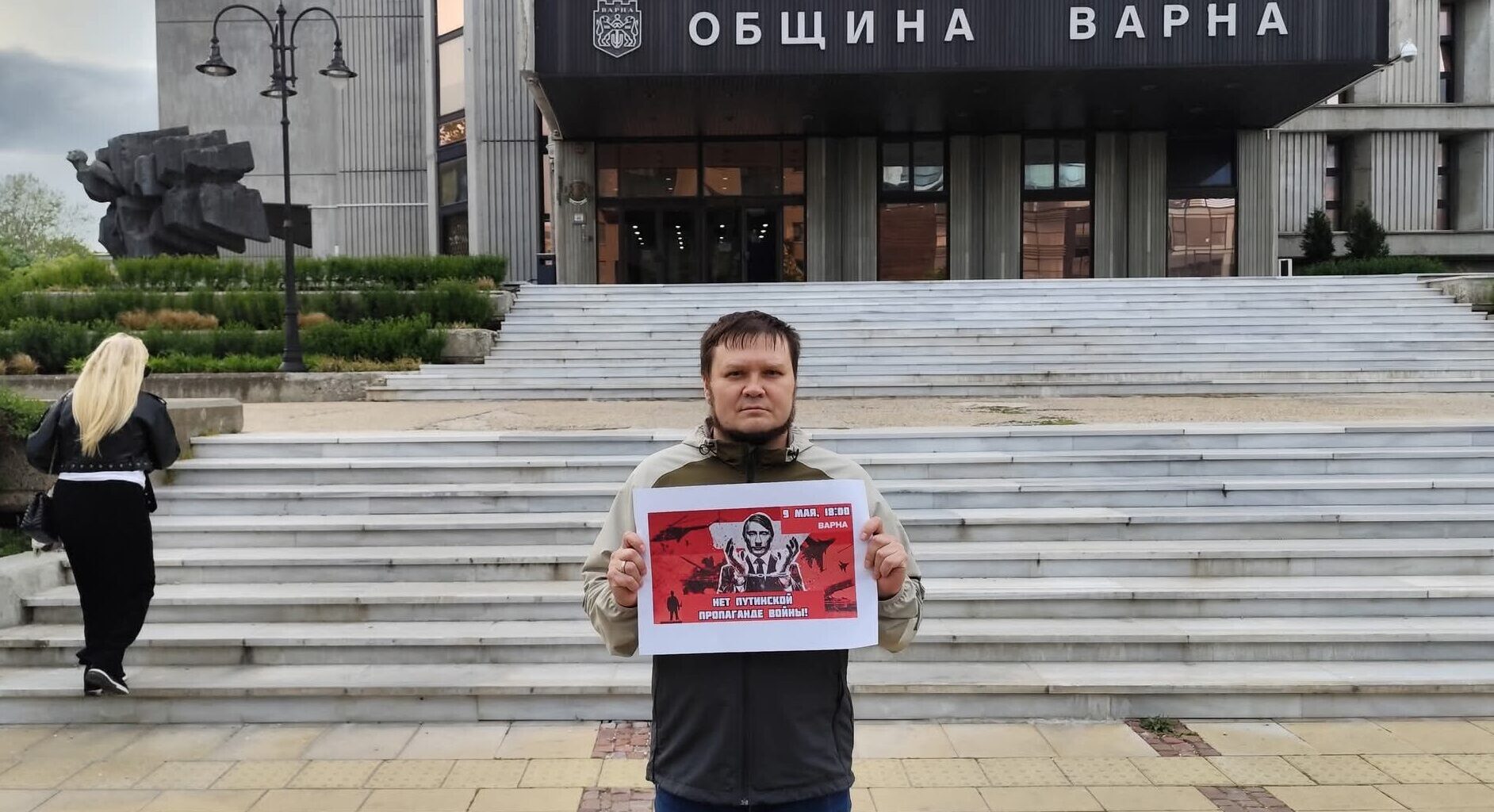Earlier this year, BIRN was contacted by another Russian citizen seeking asylum in Bulgaria, 22-year-old Parahin Grigoriy Alexeevich, born in Novokuznetsk.
He said he had been involved in protests in Russia from as early as 2016, when he attended a rally led by opposition leader and anti-corruption activist Alexei Navalny aged just 13. But Bulgaria’s State Agency for Refugees rejected his asylum application, citing a doubt that he could develop a political leaning at such an early age.
Alexeevich, who provided to BIRN his rejection note and testimony to court, also confirmed that he was involved in demonstrations from an early age. “Navalny inspired me to engage in protest activities and my mother is a politically conscious person too, she organised a protest in my hometown against the government in 1991,” he said.
Alexeevich says he was arrested during another protest in Russia in November 2017 and that he has been under surveillance from the Russian authorities ever since, including the Federal Security Service. He also attended protests in 2021 in support of Navalny, where he says he was being monitored.
“In the winter of 2021, a week before the start of the rally in support of Alexei Navalny, literally every day, employees of the Center for Combating Extremism came to the school and people’s homes, handing out warnings not to engage,” he said.
After Russia’sfull-scale invasion of Ukraine, during an anti-war protest in March 2022, he was arrested by the police in front of his home, as he was heading towards the demonstration. He was then questioned for three hours and threatened he would be sent to serve in the military.
Before arriving in Bulgaria, Parahin had started his migrant journey from Ekaterinburg. He said there were not many flights out of the airport at the time so he flew to Kazakhstan, where he was questioned by police about whether he planned any protest activity, before being allowed to go.
After Kazakhstan, he got a visa in Northern Cyprus. Then he moved to Tbilisi in Georgia for a year, where he attended more anti-Putin demonstrations.
He arrived in Bulgaria in 2023, where he was again part of anti-Putin rallies. During this time, he says that he made donations to the ‘Freedom of Russia Legion’. He has offered recordings of his protest attendance and media appearances to the Bulgarian authorities, as well as a letter from Navalny’s Anti-Corruption Foundation from 2025, which recognises his activity as a volunteer in his hometown. Online, he uses the pseudonym Abdurakhman Rodzaevsky, which he explains “sounds strong, beautiful” and emphasises his Muslim background.
His asylum request has been rejected twice, in 2023 and 2025. The rejections say Alexeevich is offering “unconvincing evidence” with sources not translated into Bulgarian. Officials told him his affiliation to different anti-Putin organisations pose a threat to his life. They said his 2017 arrest happened too long ago “to have an effect on his current case”.
Alexeevich said he plans to leave for Bosnia and Herzegovina, where he expects that he will obtain asylum status easily.
